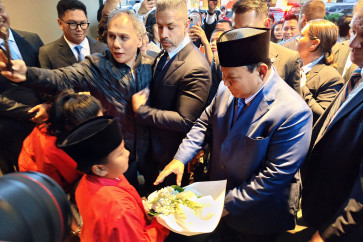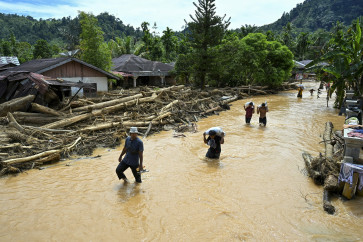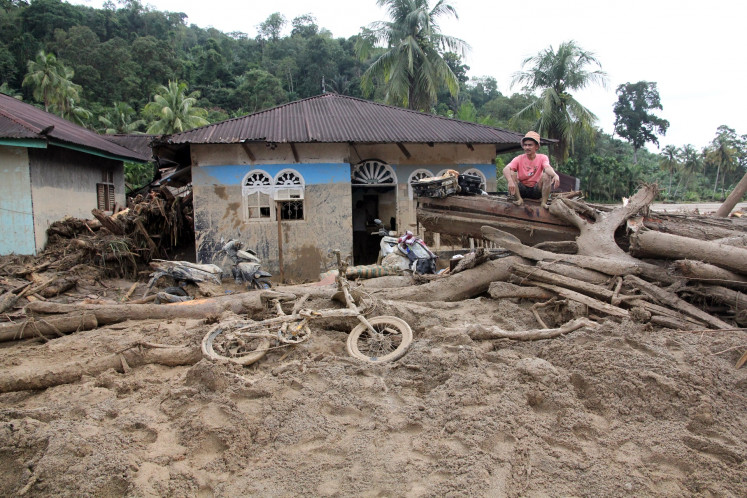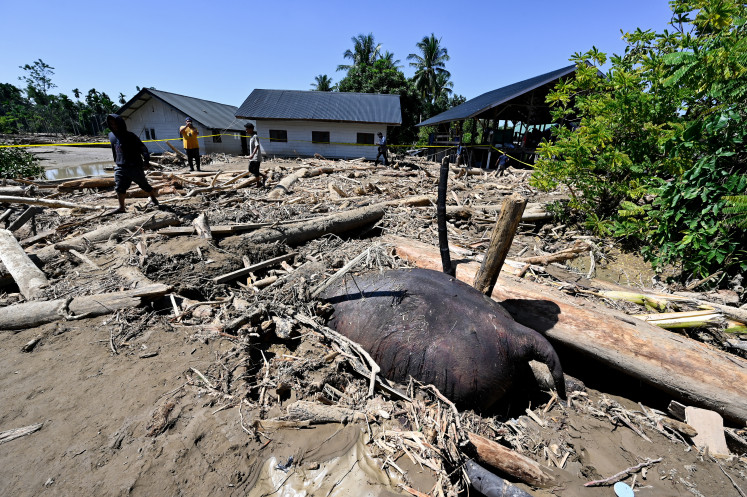Popular Reads
Top Results
Can't find what you're looking for?
View all search resultsPopular Reads
Top Results
Can't find what you're looking for?
View all search resultsRejuvenating connectivity through the Asian Highway Network
Indonesia hosted the first International Road Federation (IRF) Asia Regional Congress and Exhibition on Nov
Change text size
Gift Premium Articles
to Anyone
I
ndonesia hosted the first International Road Federation (IRF) Asia Regional Congress and Exhibition on Nov. 17 to 19 in Bali. This event connected policymakers, particularly ministers and local governments; as well as practitioners, business communities and academicians from 116 countries.
The IRF is an NGO that responds to growing mobility needs and promotes sustainable roads and road networks. It is in line with another existing highway development project called the Asian Highway (AH) Network. While the IRF provides a forum for sharing innovative solutions; the AH project plays a greater role on policy formulation and implementation.
Established in 1959 by the UN Economic and Social Commission for Asia and the Pacific (UNESCAP), the AH aims to develop the international land transportation networks as well as promote international trade and tourism. The highways built under these project link capital cities and other important cities, ports, business centers and tourist destinations.
Twenty-three member countries signed the intergovernmental AH agreement in April 2004 during the 60th session of UNESCAP at Shanghai. This agreement was put into effect several months after. It arranged a map of highway routes across Asia and provided technical standards for roads and road signs along the highway.
As a system of standardized roads intertwining many Asian countries and with links to Europe, the AH network has considerably supported the realization of Asian regionalism. The AH network comprises about 143,000 kilometers of roads passing through 32 member countries; mostly developing countries.
The AH routes in Indonesia consist of two routes: AH-2 and AH-25. The numbers attached indicate whether the routes cross more than one sub-region or within sub-regions. AH-2 is a 13,177 km roadway from Denpasar, Indonesia to Khosravi, Iran. The main corridors in Indonesia encompass the western part of Bali and the northern part of Java. The route includes a ferry line to Singapore and continues through Malaysia, Thailand, Myanmar, India, Bangladesh, Nepal, Pakistan and Iran. The routes are almost accomplished, except for the ferry line, which is still being studied.
AH-25 connects northern Sumatra to the south and to Merak Seaport in West Java. The project still mainly covers non-toll roads, about 2,723 km and 14 miles of ferry routes between Bakauheni and Merak Ports, while the length of toll road only covers 34 km.
As an emerging economy, Indonesia needs to build a greater transportation infrastructure and invest more on highway development projects. Indonesia is also expected to gain technological solutions and management practices on road infrastructure advancement through the networks.
The IRF congress opened the opportunity for Indonesia to effectuate these expectations. Under the theme 'Building the Trans-Asia Highway', the agenda seems feasible to support the whole scheme of road development, including the AH project. The National Development Planning Ministry plans to invest around US$104 billion for the period of 2015 to 2019 to materialize the road development projects.
For Indonesia, connectivity across borders would speed up the transfer of goods and services, improve productivity network competitiveness and indirectly reduce poverty. It would become a channel for Indonesia to prepare for the start of the ASEAN Economic Community in 2015; to narrow the development gap between Asian economies.
Some challenges need to be addressed, though. There should be harmonization between hard and soft infrastructure. Beside increasing highways and improving existing roads, attention also needs to be directed at transparency and accountability issues.
Public-private partnerships need to be enhanced to sustain the projects. The involvement of private investors depends greatly on the transparency of regulations; thus, building common rules and regulations is important.
Another challenge is improper coordination between central and local governments, particularly in managing cross-border points. Central and local governments should work together and invest more on infrastructure development in border areas to create more jobs and to boost local economic growth.
The next challenge is to evaluate the impact of highway project development on the environment. An environmental impact assessment should be optimized to examine the social and environmental consequences of the program toward 'green connectivity'.
Now is perhaps the best time to rise and catch up in toll infrastructure development since the new government is opening greater opportunities for investment-related connectivity projects.
As leaders blast the concept of a 'maritime corridor' that connects the so-called neglected eastern territory with the western, they need to show the same concern to improve land transportation infrastructure. If land and sea infrastructure are built properly as a whole, then perhaps a dream to make Indonesia as a world's top 10 economies by 2025 is not merely a chimera.
________________
Silvia Dian Anggraeni is an alumna of the Graduate School of International Affairs, Ming Chuan University, Taiwan. Ali Muhyidin is a PhD candidate in international studies, the University of Tokyo and a lecturer in political science, University of Indonesia.










